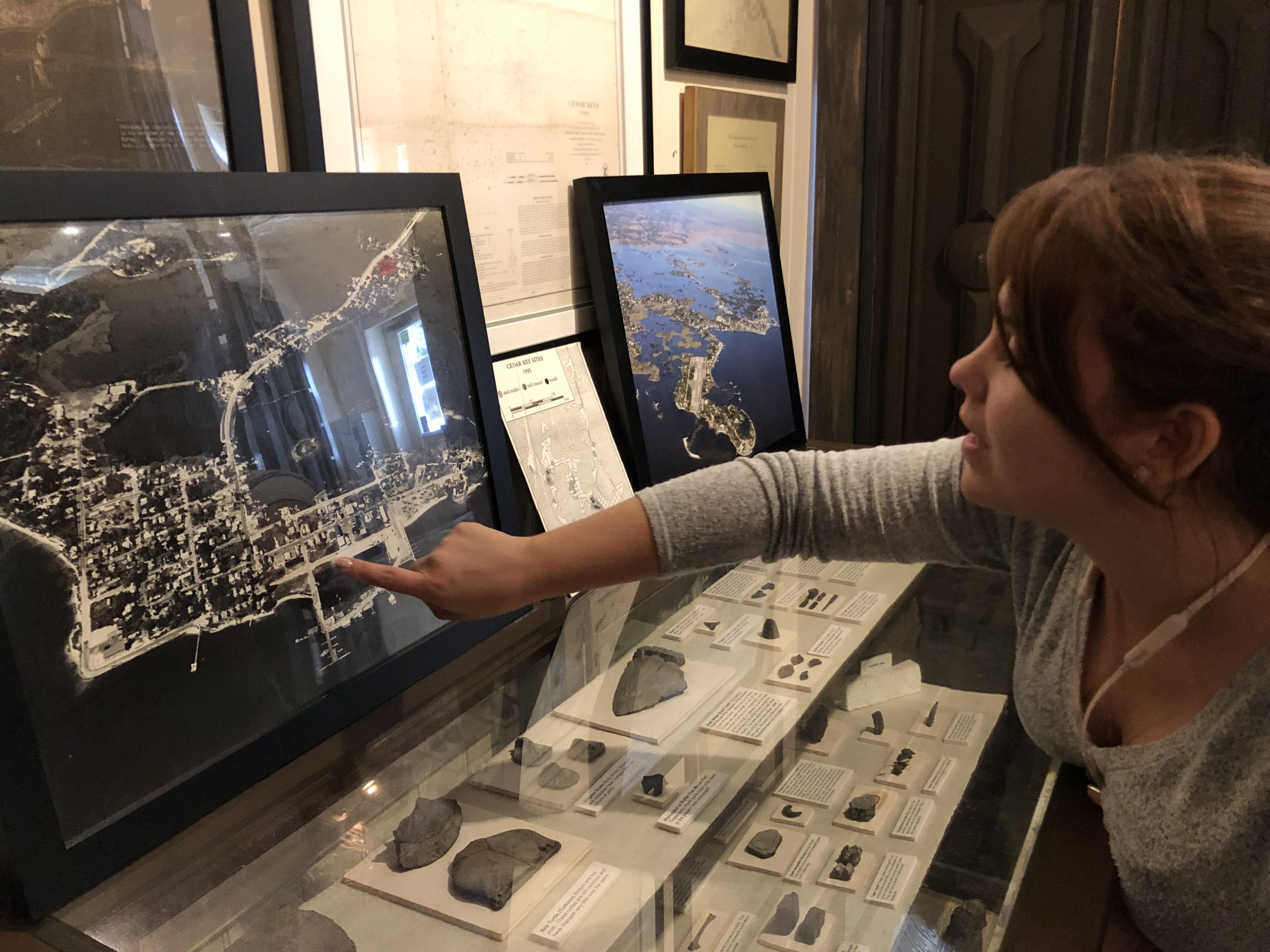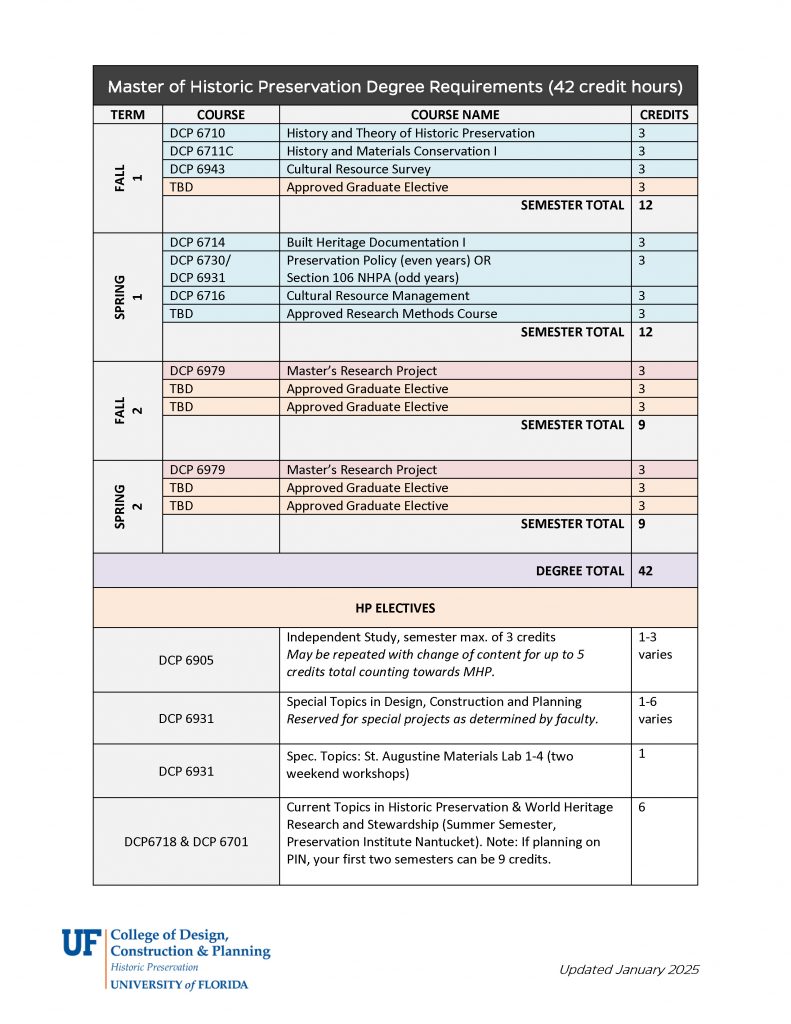
Master of Historic Preservation
The Master of Historic Preservation (MHP) program promotes interdisciplinary, critical thinking and active problem solving through research, documentation, conservation, and management of historic resources. Drawing from the disciplines housed within the College of Design, Construction and Planning, as well as other units across campus, Historic Preservation coursework encompasses theoretical and applied skills in historic preservation, anthropology, archeology, architecture, building construction, cultural tourism, history, interior design, landscape architecture, museum studies, and urban and regional planning.
Practitioner training is focused on preservation and conservation methodology in both national and international frameworks, addresses heritage at different scales (cultural landscapes, neighborhoods, architecture, interiors, and materials and building technologies) and presents a range of issues impacting the preservation of historic places including economic, legal, and sustainable practices, among others. Both the tangible (physical) and intangible (cultural) realms of heritage are explored. Coursework involves in-field and hands-on training for real-world challenges in the realm of heritage conservation.
This program is open to students with a Bachelor’s degree in any discipline from an accredited university. While experience and/or education in design, planning, technology, or history are useful, it is not mandatory for entering the program.
The MHP coursework totals 42 hours. A written thesis or research project-in-lieu-of-thesis (PILOT) meeting UF Graduate School requirements relating to historic preservation is required. Concurrent Master’s Degrees with other UF Graduate programs are available upon request.
Application Materials
The GRE is not required for the Master of Historic Preservation application. International students are still required to take the TOEFL or IELTS.
Please submit all application materials directly to the University of Florida’s Office of Admissions portal (https://admissions.ufl.edu). Do not send any materials directly to the Historic Preservation Program. The following materials must be submitted in order to be considered a complete application for review:
Application Deadlines
Domestic Students: Priority Deadline: January 15
Final Deadline: June 30
International Students: Priority Deadline: January 15
Final Deadline: March 30
The Historic Preservation Program only accepts students for the upcoming Fall semester due to course sequencing.
What is the Process for Admissions?
The Office of Admissions forwards complete application packages to the Historic Preservation Program. A departmental admissions committee comprised of UF Historic Preservation faculty and staff reviews all applications.
The admissions committee makes a recommendation and forwards it to the Office of Admissions for final processing. Upon final clearance from the Office of Admissions, we issue a decision letter to the applicant.
How Are Students Selected?
We will consider your application holistically. In addition to a strong academic background, we look for students who demonstrate their commitment to preservation and community engagement through work, volunteer, or internship experiences. Successful students are also able to clearly communicate their motivations for pursuing a Master of Historic Preservation at the University of Florida. Lastly, we look for maturity and a willingness to learn- our goal is to use our expertise to train you as a professional.
How much does it cost to attend UF?
You can find estimated costs here: https://www.sfa.ufl.edu/cost/
